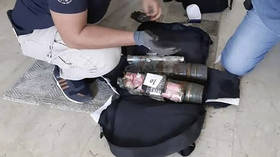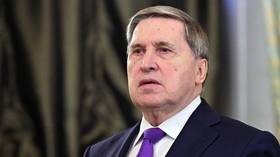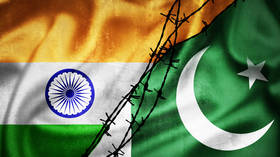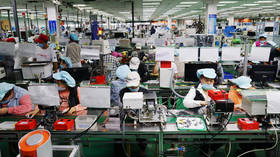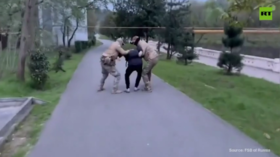Russia says EU sanctions a product of ‘hysteria’ about former African colonies
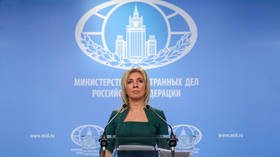
Sanctions against Russian citizens linked to the private paramilitary company Wagner are a product of “hysteria” in European capitals about their former colonies in Africa, and Russia will respond to the move, Moscow has warned.
Some European capitals have a “jealous attitude” towards states in Africa and the Middle East, the independence of which they were forced to recognize, and whose decision to hire a private company to handle their security “exacerbates their post-imperial ambitions,” Russian Foreign Ministry spokeswoman Maria Zakharova claimed on Tuesday.
Zakharova was addressing measures taken by the EU against the Wagner Group, which also includes sanctions aimed at three firms and eight Russians the official said had been “groundlessly” linked to the organisation. Russia reserved the right to respond to the EU’s unfriendly action, she added.
Describing unilateral restrictions as “illegitimate” from the standpoint of international law, Zakharova pointed out that private military companies were not controlled by the Russian government, and independent states had every right to make sovereign decisions about their security.
“With its illegal restrictions, the European Union casts doubt on the sovereign right of UN member states to build independent domestic and foreign policy. This is a direct violation of the fundamental norms of international law,” she said.
On Monday, Brussels announced a freeze on all Wagner’s assets and targeted eight Russian nationals and three companies “linked” to the security contractor, accusing the group of “serious human rights abuses in Ukraine, Syria, Libya, the Central African Republic (CAR), Sudan, and Mozambique.” No evidence was provided for the claim.
Zakharova noted that what the countries named by the EU have in common was that they had been “destabilized by the ‘export’ of Western democracy,” which, in turn, had led to mass illegal migration and a surge of terrorism, organized crime, and drug trafficking into Europe. The EU had resorted to anti-Russian sanctions instead of admitting its mistake and working to correct it, Zakharova added.
Moscow called on the EU to “stop attempts to interfere in the internal affairs of sovereign UN member states” and “renounce all unilateral restrictive measures introduced outside the framework of international law.”
